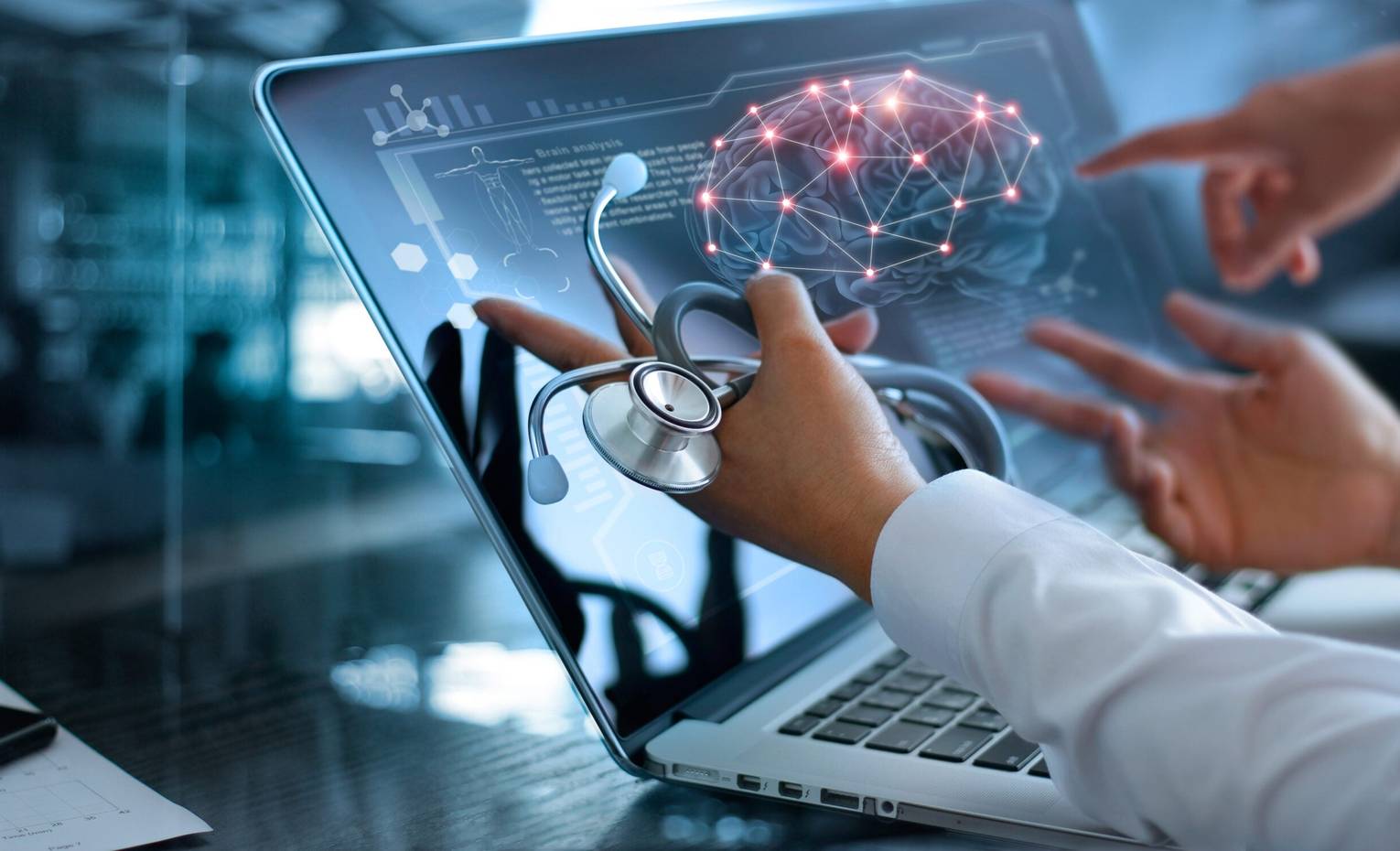
Artificial Intelligence in Self-Care: Opportunities & Challenges
Barkat Health & Pharmaceutical Group: In today’s world, with the rapid advancements in technology, artificial intelligence (AI) has become a powerful tool across various fields. One such field, particularly in the post-pandemic era, is mental and physical health. AI technologies have the potential to help individuals take effective action in self-care. This article will examine the feasibility and challenges of utilizing AI systems for self-care education in mental and physical health.
In recent years, mental and physical health has become one of the top priorities of human societies. The rise of issues such as anxiety, depression, and stress—particularly during global crises—has underscored the importance of focusing on effective self-care practices. As a result, innovative technologies like AI, which can analyze vast amounts of data and offer personalized solutions, can be instrumental in improving public health.
This article aims to focus on the advantages, challenges, and the future of AI in this context.
Fundamental Concepts of Self-Care and AI
1.1. Self-Care & Importance:
Self-care refers to an individual’s responsibility for maintaining and enhancing their health, encompassing both physical and mental well-being. This approach empowers individuals to utilize their own capabilities to tackle health challenges and diseases. Self-care involves practices such as stress management, maintaining a healthy diet, regular exercise, adequate sleep, and managing emotions and social relationships.
Self-care is vital not only for preventing illnesses but also for enhancing the quality of life. By taking care of themselves, individuals can cope with daily stresses and prevent psychological and physical crises. Additionally, since individuals are capable of managing their conditions through self-care, they can gain greater autonomy in facing various challenges. This process can also reduce dependency on healthcare systems and medical professionals.
1.2. Artificial Intelligence & Applications in Health:
Artificial intelligence (AI) refers to intelligent systems capable of performing tasks that typically require human intervention. These systems can analyze complex data, simulate human-like behaviors, and assist in automated decision-making across various fields. In healthcare, AI can be utilized for predictive modeling, data analysis, personalized health recommendations, and even data-driven treatments.
AI can collect vast amounts of data from diverse sources and analyze it with high precision and speed. These systems can be used for predicting future trends and simulating various behaviors and responses. In health, these systems are especially effective in evaluating individual conditions, predicting diseases, and even designing appropriate treatment plans. The ability of AI to personalize treatment and care recommendations plays a significant role in improving individuals’ quality of life.
Feasibility of Using AI in Self-Care Education
2.1. Advantages of Using AI for Self-Care Education:
- Access to Diverse and Personalized Educational Resources: One of AI’s primary advantages is its ability to provide personalized educational content. Based on data collected from users (such as behaviors, preferences, and mental or physical health issues), AI can offer tailored recommendations for improving one’s health. This allows individuals to engage in self-care education and learning without the need for physical visits to healthcare centers.
This level of personalization allows users to receive educational materials and courses suited to their specific needs. This approach can help individuals better tackle their personal challenges and achieve better outcomes in mental and physical health. Furthermore, these programs can be easily updated and can respond to changing user conditions. As a result, this approach is much more effective and dynamic than traditional educational methods.
- Development of Smart Care Programs: AI systems can automatically create updated, intelligent care programs. For instance, in the field of mental health, AI algorithms can design meditation and mindfulness programs or automated counseling sessions based on analyzing user behaviors to help manage stress and anxiety.
Smart care programs, using AI, are capable of analyzing daily behaviors and individual needs. These algorithms can automatically detect changes in an individual’s physical or mental state and provide tailored recommendations to improve their condition. For example, an AI system could recommend mindfulness exercises to someone suffering from depression, or suggest sleep-improvement techniques to someone with insomnia. This dynamic approach in care programs can have a significant impact on improving both mental and physical health.
- Predicting Health Risks and Prevention: AI systems can analyze user behavioral patterns to predict health risks and issues. These predictions can address various concerns, including physical health issues (such as the risk of heart disease, diabetes, and obesity) or mental health conditions (such as depression and anxiety). By predicting these issues, individuals can take preventive actions before a crisis occurs.
The ability to predict health issues based on the analysis of user data is one of the unique features of AI. These systems can simulate health risks more accurately than any individual and can help prevent chronic diseases or psychological conditions. Such predictions can be instrumental in modifying behavioral habits and preventing issues like high blood pressure or chronic anxiety. With timely prevention, individuals can manage their health more effectively.
2.2. Specific Applications of AI in Self-Care:
- Digital Advisors (Chatbots): Many AI-powered applications and platforms are specifically designed to assist in mental health and use chatbots for automated counseling. These chatbots effectively address everyday issues and help individuals manage stress, anxiety, and negative emotions.
Chatbots have proven to be an effective tool in initial psychological treatments and basic counseling. These systems are continuously available and can respond quickly when someone requires immediate advice. Additionally, chatbots can guide individuals through relaxation exercises, meditation, and shifting negative thought patterns.
- Personalized Nutrition and Exercise Programs: Many AI-driven applications create personalized nutrition and exercise plans tailored to the user’s specific needs. These programs offer advice on healthy diets, exercise types and intensity, and even sleep patterns.
This level of personalization in nutrition and exercise plans can assist individuals in setting health goals based on their physical and mental status. For example, AI systems can assess a person’s activity level, calorie intake, and specific health needs to design optimal programs for weight loss, increased energy, or muscle strengthening. This helps individuals reach their health goals more effectively and with greater motivation.
- Monitoring and Analyzing Individual Behaviors: Given AI’s ability to analyze data, it can continuously and precisely monitor individual behaviors and provide analytical reports to users. For example, an AI system could track an individual’s sleep patterns and offer recommendations on how to improve sleep quality based on data collected from sensors.
Continuous monitoring and analysis can help individuals become more aware of sudden changes in their physical or mental health. For instance, AI systems can accurately analyze an individual’s sleep trends and suggest adjustments to sleeping time and quality. These systems, using data from digital tools like wearable sensors or mobile apps, can provide precise insights for improving personal health.
Challenges & Risks
3.1. Privacy , Data Security Issues:
One of the biggest challenges in using AI systems for health is the issue of privacy. Collecting sensitive health data, whether physical or mental, requires safeguarding personal information. Any misuse of this data could have irreversible consequences for users. Especially in the realm of mental health, the use of AI systems may present additional risks such as data breaches, misuse of information, and cyberattacks.
The data collected by AI systems can be highly sensitive, especially when it pertains to an individual’s mental, emotional, or physical health. The exposure of such sensitive information could lead to negative consequences, including social stigma, legal problems, and harm to the individual’s reputation. Therefore, ensuring data security and privacy must be a top priority when designing and implementing these systems.
3.2. Trust in Automated Systems:
Despite the advantages of automated systems, one of the primary challenges is whether individuals can fully trust these systems. For instance, in the case of psychological counseling, can an intelligent chatbot be as accurate and effective as a human counselor? At times, these systems may not be able to recognize all aspects of an individual’s psychological issues and might not provide real solutions.
Trusting AI systems is one of the greatest psychological and social challenges. In some cases, individuals might feel skeptical about automated counseling and may not accept it as a replacement for human advice. Additionally, these systems may fail to understand the complex and changing nature of human emotions, especially when dealing with deep psychological and emotional issues.
3.3. Dependence on Technology & Reduced Human Interaction:
Excessive reliance on AI technologies for self-care might lead to reduced human interactions and feelings of isolation. Humans need social interactions, and human connections are an essential part of mental well-being. If individuals become too dependent on digital counseling and AI, they may neglect real-life social interactions and human-based counseling.
Over-reliance on digital technologies can pose significant social and psychological risks. Individuals may withdraw from real relationships with friends, family, and human counselors, which could reduce the quality of their social connections and negatively impact their mental health. Genuine human interactions, especially in therapeutic and counseling contexts, hold immense value and cannot be entirely replaced by AI.
Conclusion:
The use of artificial intelligence in self-care holds considerable potential for improving mental and physical health. This technology can help individuals make healthier choices in their daily lives and manage their health conditions more effectively. However, special attention must be paid to the challenges and risks associated with AI, such as privacy concerns, data security, and the need to preserve human interaction.
Ultimately, while AI can serve as a valuable tool for self-care education, it should never replace human counseling and treatment. The balance between utilizing new technologies and maintaining human connections is essential for the effective use of these systems in improving individual health.
-
Afghanistan’s Ministry of Public Health Delegation Meets Barkat Pharmaceutical Group Executives

-
Voice of Life in World of News — Redefining Health Journalism in the Information Age

-
Senior Health Officials & Barkat GD Visit Sobhan Oncology

-
Barkat Group specialized meeting

-
Safa Appointed as Barekat General Director

-
Barekat Health & Pharmaceutical Group at the 10th Iran Pharma Exhibition

-
Ali Safa visits Sobhan Oncology & Sobhan Darou

-
Pirsalehi & Safa visit Saman Daroo 8 Knowledge-based Company

